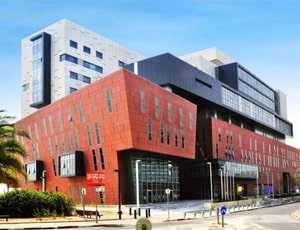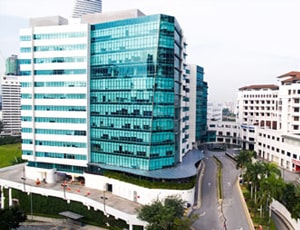The prostate is a gland in the male reproductive system, which makes fluid that forms an essential part of the semen. Prostate cancer starts when cells of the prostate glands begin to grow abnormally
Prostate cancer is one of the leading cancers in men above the age of 60. In most of the cases, it is slow growing and may even go undetected and do not cause any problem. However, in some cases, it could be aggressive and cancer cells can spread to other parts of the body (metastatic prostate cancer)
Prostate cancer is a very slow growing disease and starts with tiny alterations in the shape and size of the prostate gland cells. The prostate cancer risk increases with age and it is rarely observed before the age of 40. That is the main reason why many men die of old age, without ever knowing that they had prostate cancer.
There is no direct prostate cancer causes. However, there are some factors that can increase the risk of prostate cancer, including the following:
Usually, prostate cancer means the cancer of prostate gland cells called prostatic intraepithelial neoplasia (PIN). Almost all the prostate cancers are adenocarcinomas, but there are some other types of prostate cancer as well, including the following:
Based on how abnormal the patterns of cancer cells look, prostate cancers are classified as:
There are no warning signs of prostate cancer. The symptoms of metastatic prostate cancer usually appear first in the region that the cancer cells have invaded.
After cancer causes the prostate gland to swell, the following signs of prostate cancer may be experienced:
In prostate cancer stages, the following symptoms may also be there:
Before initiating any kind of treatment, it is important to diagnose prostate cancer clearly to see whether it is in an early stage or advanced stage. In addition, the type and stage of prostate cancer should be clearly diagnosed.
After the physical examination, your doctor might go for prostate-specific antigen (PSA) blood test. It is used mainly to screen for prostate cancer in men without symptoms. Other than this, transrectal ultrasound (TRUS) and other pathology tests can be done for diagnosis of prostate cancer. However, the final and confirmed diagnosis of prostate cancer are only possible by conducting a biopsy.
Another test used for the diagnosis of prostate cancer is a digital rectal exam (DRE). In this test, the doctor inserts two lubricated, gloved fingers inside the rectum of the patients to examine the prostate gland. Any change in the shape and size of the prostate can be identified during DRE.
The doctor may also conduct an ultrasound or collect a sample of tissue from the prostate gland to conduct a biopsy and confirm whether cancer cells are present in the tissue or not. In this test, the prostate cancer stage is also confirmed.
Treatment for prostate cancer can be divided into early stage and advanced stage. Your doctor will choose the best suitable treatment for you, depending on the stage and classification of prostate cancer, your age, and overall health status. Although, your feelings, expected lifespan, and your opinion will play a major role in choosing the right kind of treatment.
The most common treatment options for prostate cancer include the following:
Watchful waiting or active surveillance
No immediate treatment is carried out, but the patient is followed up at regular intervals to see the progression of the disease. This method is used in elderly patients with short life expectancy and in case of an early disease.
The main type of prostate surgery is called radical prostatectomy. In this, cancerous tissues are removed by a surgical operation. A long cut in the abdomen is needed in this surgery, depending on the extent and stage of cancer.
However, a keyhole surgery for prostate cancer using a laparoscope or robot is also available. These treatments have good success rates but may result in certain long-term side effects such as sexual dysfunction, narrowing of the urethra, and urinary incontinence.
High-intensity beams are used in this treatment to destroy the cancer cells in the prostate. Radiotherapy can be administered via needles implanted into the prostate, under ultrasound guidance or as an external beam. Radiotherapy can be used after surgery if the resection of cancer tissue has not been completed.
There are two types of radiotherapy for prostate cancer:
In this, the radiation beams are shaped so that the region where they overlap is as close to the same shape as the organ that requires treatment. It minimizes healthy tissue exposure to radiation.
In this, the beams with variable intensity are used. It is an advanced form of conformal radiotherapy. It is usually delivered with the help of a computer-controlled linear accelerator.
Hormone therapy involves the use of medications that suppress testosterone levels. They are used as primary treatment and in advanced cases or Stage 4 prostate cancer.
Chemotherapy is a kind of advance drug treatment in which strong medications are used to kill the cancer cells and prevent it from spreading. It is used when the prostate cancer is not controlled by hormonal treatment. Chemotherapy is selected only for treatment of Stage 4 prostate cancer and when the patient can cope with it.
This treatment uses extremely cold temperatures to freeze and destroy cancer tissues in the prostate. Cryotherapy is the best option for treating recurrent prostate cancer, especially if initial radiation therapy did not kill enough cancer cells. The surgeon inserts an ultra-thin metal probe or needle into the prostate gland, from which a freezing liquid, such as liquid nitrogen or more commonly, argon gas, is infused into the prostate gland.
Some treatments such as radiofrequency and high intensity focused ultrasound (HIFU) are used to treat early prostate cancer or when the patient is not fit for a major surgery.

Delhi, India
Equipped with more than 50 specialty institutes, Indraprastha Apollo was started with the vision of ...more
![]() Private Rooms
Private Rooms
![]() Translator
Translator
![]() Nursery / Nanny Services
Nursery / Nanny Services
![]() Airport Pick up
Airport Pick up

Tel Aviv, Israel
Assuta Medical Center is a leading private hospital in the capital city of Tel Aviv in Israel. Assut...more
![]() Accommodation
Accommodation
![]() Airport Transfer
Airport Transfer
![]() Choice of Meals
Choice of Meals
![]() Interpreter
Interpreter

Kuala Lumpur, Malaysia
History Parkway Pantai Hospital in Kuala Lumpur, Malaysia is operating under the Parkway Pantai gro...more
![]() Accommodation
Accommodation
![]() Airport Transfer
Airport Transfer
![]() Choice of Meals
Choice of Meals
![]() Interpreter
Interpreter

Surgical Oncologist
Delhi, India
15 of experience
USD 45 for video consultation

Kidney Transplant Surgeon
Delhi, India
of experience
USD 40 for video consultation

Medical Oncologist
Ghaziabad, India
18 Years of experience
USD 28 for video consultation

Medical Oncologist
Delhi, India
21 of experience
USD 50 for video consultation
Q: What is the prostate cancer cure rate?
The cure rate for prostate cancer is over 90 percent if the cancer is diagnosed early in local state. Within a period of 5 years, all of the men diagnosed with prostate cancer in the regional state are free of cancer.
Q: Is it fatal?
In absence of timely treatment and detection in advances stages, prostate cancer may prove deadly.
Q: What is the prostate cancer survival rate?
A: The 5-year survival rate associated with early-stage prostate cancer is almost 100 percent. For men with prostate cancer that has spread to other parts of the body, the 5-year survival rate is just 29 percent.
Q: What is the prostate cancer surgery cost?
A: The total cost of prostate surgery depends on several factors, including the country and the hospital where you decide to seek treatment, the total duration of hospitalization, the type of surgery conducted, hospital charges, surgeon’s fees, and the technology used to conduct the surgery.
Q: What is the prostate cancer treatment cost?
A: The overall prostate cancer treatment cost depends on which treatment modalities are used to remove the cancer cells. For example, it depends on whether your treatment plan includes surgery, chemotherapy, radiotherapy, or hormone therapy or a combination of two or more of these options.